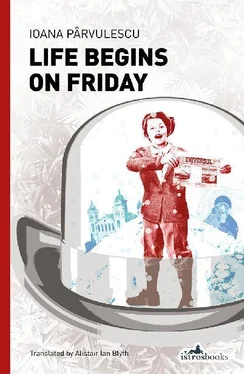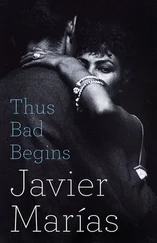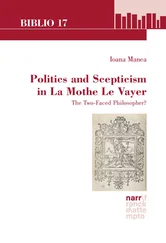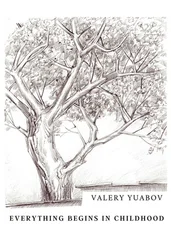Now she did not have a heart in her head and made a cool judgement, whereas he was aflame. Perhaps it was because she had placed on ice the lemon cream she had made for the last day of the year.
The servant arrived with an invitation.
‘Look at this,’ said his wife, ‘we are invited, together with your friends, the Mirto brothers, to the Livizeanu house on New Year’s Eve! Isn’t it rather short notice?’
This time old man Cercel’s belly woke up before him. The doorman immediately awoke from his light sleep, wondering what it was he could hear, and then, when he realized it had woken him and was making a din, the same as when his daughters were babes in arms and bawled for their mother’s milk, he was reassured and at the same time not reassured one bit. He promised himself yet again that he would go to Dr Margulis, of whose verdict he was nonetheless afraid. Anything except the surgeon’s knife! In any event, he would go after the New Year. Now wasn’t the right moment. And then he turned his mind to something more pleasant and said to himself: ‘Today we find out the lottery draw numbers! What will we do if we win?’
Ever since she started hearing her husband speaking sweet and soothing words, which she genuinely imagined were addressed to her, his wife had softened and was no longer as quarrelsome as before. She answered in her voice from her youth that she would like to have a carriage with handsome horses, with elegant bridles, like the upper crust, and at least one or two servants to help her around the house, because she ached all over and could no longer do all the work herself: washing, ironing, dusting, tending the vegetable patch, turning the manure over, checking to see whether the hens had laid, cooking, laying the table, making everything spick and span, and then just when you think you’ve finished, starting all over again as if… Old man Cercel interrupted her: ‘I’d like to extend the coop, buy some more pigeons and give Nicu some money to get married or send him to a big school, because he chipped in for a third of our ticket.’
‘Don’t count your chickens before they’re hatched. Go to work, and if you win, then you won’t have to stay there, because we won’t need you to, but come home quick and tell me the news.’
Old man Cercel felt a stabbing pain inside and gripped his belly with both hands, doubling up with a gasp as if he were drowning.
‘Wife!’
‘She’s not at home,’ she quipped, because her thoughts of horses and servants had put her in a good mood.
‘I’m not going to work today, I’m going to the doctor’s,’ he said in a faint voice. ‘I think there’s something wrong with my belly.’
The woman took fright. Looking in the wardrobe, where all the things were arranged as neatly as soldiers on parade, she gave him his best underclothes. Then she took out his Sunday best and helped him to get dressed. The doorman left, clutching his belly and groaning.
*
‘Is it bad, doctor? Will I have to go under the knife?’
Old man Cercel was lying on the oilcloth-covered bed in Dr Margulis’ surgery. He had received him immediately, bringing him to the front of the queue, when he saw him clutching his belly. First of all he asked him countless questions, about childhood illnesses, about what he ate and drank, about how often and since when it hurt, and in what way. Then he told him to take off his coat and shirt and vest, to lie down on the bed and with a light hand he began to press, constantly asking: ‘Does it hurt?’ ‘Is it painful here?’ Then he lightly rubbed his hand in a circle over Cercel’s belly, which was soothed as if by magic.
‘Is it bad?’ asked Cercel again in a choked voice.
‘I cannot say for sure yet, we will find out in a few weeks. It does not seem to be a… anything suspect. You did well to come immediately.’
Then he reeled off a series of explanations, of which Cercel understood not one jot, although the unfamiliar words horrified him, and finally, speaking in Romanian once more, he gently told him what he had to do from then on.
‘You are going on a diet. No more of your plum brandy, even if it is very good; no more of your wife’s sour soups; no more garlic onions and pepper, nor even raw fruit and vegetables. No more freshly baked bread. The drier the bread, the healthier it is for you. Instead, eat olive oil, boiled meat and steamed vegetables with butter. Boiled eggs. And let us have a look at you in another two weeks. You can go to work now without any worry.’
Reinvigorated, old man Cercel set off on foot towards No. 11 Strada Brezoianu. No sooner had he talked to the doctor than he felt healthy again. He would have to bring the doctor a demijohn of plum brandy, especially now that he wasn’t allowed to touch it. But did the doctor touch the stuff?
From joy and worry, he started talking to himself like a madman. The newspaper was off the press, but old man Cercel did not open it. Nicu had to be there so that the two of them could look at the lottery numbers together.
Numbers 98, 38 and 51 — Nicu kept saying to himself as he passed in front of the soldier of L’Indépendance Roumaine and the bells, as if to tell him some good news, started to chime. As Nicu went on his way it was as if he were floating and as he entered the door on the left, as ever, the door which said Editorial and Administrative Offices , he took a good look at old man Cercel, trying to read whether or not the numbers were good. But the doorman’s face was inscrutable, it was as if he were laughing and crying at the same time; you couldn’t tell anything from his face.
‘Have you… have we won?’ asked Nicu, barely able to articulate the words in his excitement.
The doorman calmly picked up the newspaper. All of a sudden his face lit up and he began to laugh, and Nicu could not believe that his dreams had come true so easily: if he was laughing, then they must have won. But instead of the lottery numbers, the doorman showed him a big photograph. It was Victory Avenue, the avenue down which he came every day. In the photograph it was a sunny day, with lots of carriages and cabs and long icicles on the buildings. A short distance from the L’Indépendance building was a gentleman, oh, he recognized him: it was Mr Costache, furious, raising his cane threateningly. And on the other side, among the carriages, was a lad running in terror, in danger of being run over by some horses. He could also see a cabman pulling on his reins, open-mouthed. Nicu had never seen himself in a photograph and he was dissatisfied to the point of indignation. He looked small and ragged, and his smart red cap was grey. He could not remember being scared, as he looked in the photograph. He almost felt like crying, whereas old man Cercel was full of merriment. The doorman took the newspaper back from Nicu and looked for the lottery results. He scanned each page carefully, holding the newspaper, with its small, crabbed type, as far away from his eyes as possible, while Nicu read the other side, getting as close as he could, as if he wanted to climb inside and replace the photograph of himself. Finally, old man Cercel found the announcement and read it out loud: ‘12, 21 and 20. It’s not us. Look, out of all them numbers, they’ve all got a 1 and a 2. I had 98, which is the coming year, and 38, which was the year of my birth, and 51, that of my wife’s. But I got it wrong. She told me yesterday she was born in ’52, the same year as they built the Theatre.’
‘Maybe we shouldn’t have chosen just years, because not all years are winners. Should we have chosen house numbers?’
The doorman said that other things were important in life, like a healthy belly.
Читать дальше












